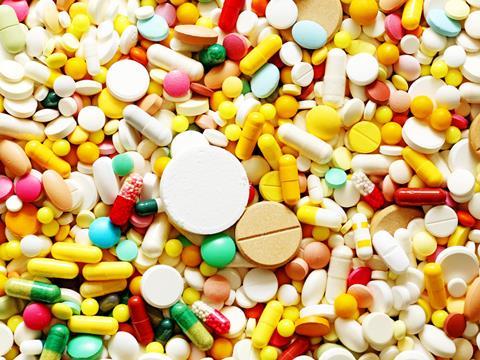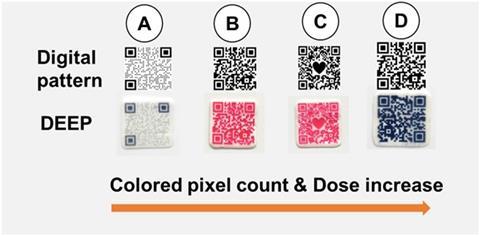
In the pharmaceuticals sector, there has recently been a shift away from the traditional ‘one-size-fits-all’ concept of drug administration to a more patient-centred one. A possible approach to obtain personalized medicine is with Data-Enriched Edible Pharmaceuticals (DEEPs), which are printed on each individual pill in the pattern of QR codes.
A study by teams from University of Copenhagen in Denmark and Uppsala University in Sweden explored patients’ preferences, perceptions, and acceptability of DEEPs and the digital aspects of them. Thirteen participants, living in Denmark, were interviewed twice during the study.
DEEP codes contain both the patient-tailored dose as well as data that can be used to give patients personalized drug information and combat counterfeit medicines. This feature enables the patient or carer to easily identify the medicine, receive customised information and trace the drug product on a standard smartphone.
Fabrication of DEEP involves formulation of the printable ink that contains both the drug and edible colorant; production of edible oro-dispersible substrate ( ‘edible paper’); and inkjet printing of the drug-containing ink onto the edible paper in the pattern of the QR code.
The desired dose of the drug in DEEP can be achieved by digital adjustment of the QR code pattern that is imprinted. The dose can be digitally varied by changing the physical size of the QR code, by modifying the pattern type of the code and by embedding the images.

The participants found it useful to participate in the design of their own medicine. The oro-dispersible nature of DEEPs and the possibility to select colour, embedded images, flavours, and the physical dimensions of them were considered beneficial for patient adherence.
Patients’ personal preferences, convenience, and aesthetics were the main drivers for their favoured design of DEEPs. For example, they preferred DEEP in either blue or red colour with a size that would not be bigger than the tongue. The acceptability of digital healthcare in connection to DEEPs was found to be related to the participants’ level of digital literacy.
Patient-tailored treatment can be a challenge with conventional oral products based on tabletting. This is due to several factors: restricted flexibility in the dosage strengths on the market; an inappropriate dose can lead to adverse drug reactions or lack of therapeutic effect; the absence of age-appropriate doses and formulations; generic and complex information regarding the drug intake can lead to poorer compliance and/or incorrect use; and there are limited opportunities for tracing a single pill back to the batch it came from.
The unique appearance of DEEPs help to identify the medicine and to receive the customised information via the embedded the QR code. A further advantage is that the drug product is traceable even if the original package is lost or not available.
Also, DEEP technology paves the way toward the circular pharmaceutical supply chain by allowing the production of personalised medicines on-demand, avoiding the accumulation of expired and tainted drug products.
Generally, there was a positive attitude towards DEEPs and the digital aspects of them. However, to accept digital healthcare in this format, it needs to be adaptable and easy to use for everyone. The combination of digital healthcare and on-demand fabricated DEEPs could potentially contribute to higher patient adherence and safety in the future, the study found.
This article was created in collaboration with AIPIA (the Active and Intelligent Packaging Industry Association). Packaging Europe and AIPIA are joining forces to bring news and commentary about the active and intelligent packaging landscape to a larger audience. To learn more about this partnership, click here.













No comments yet